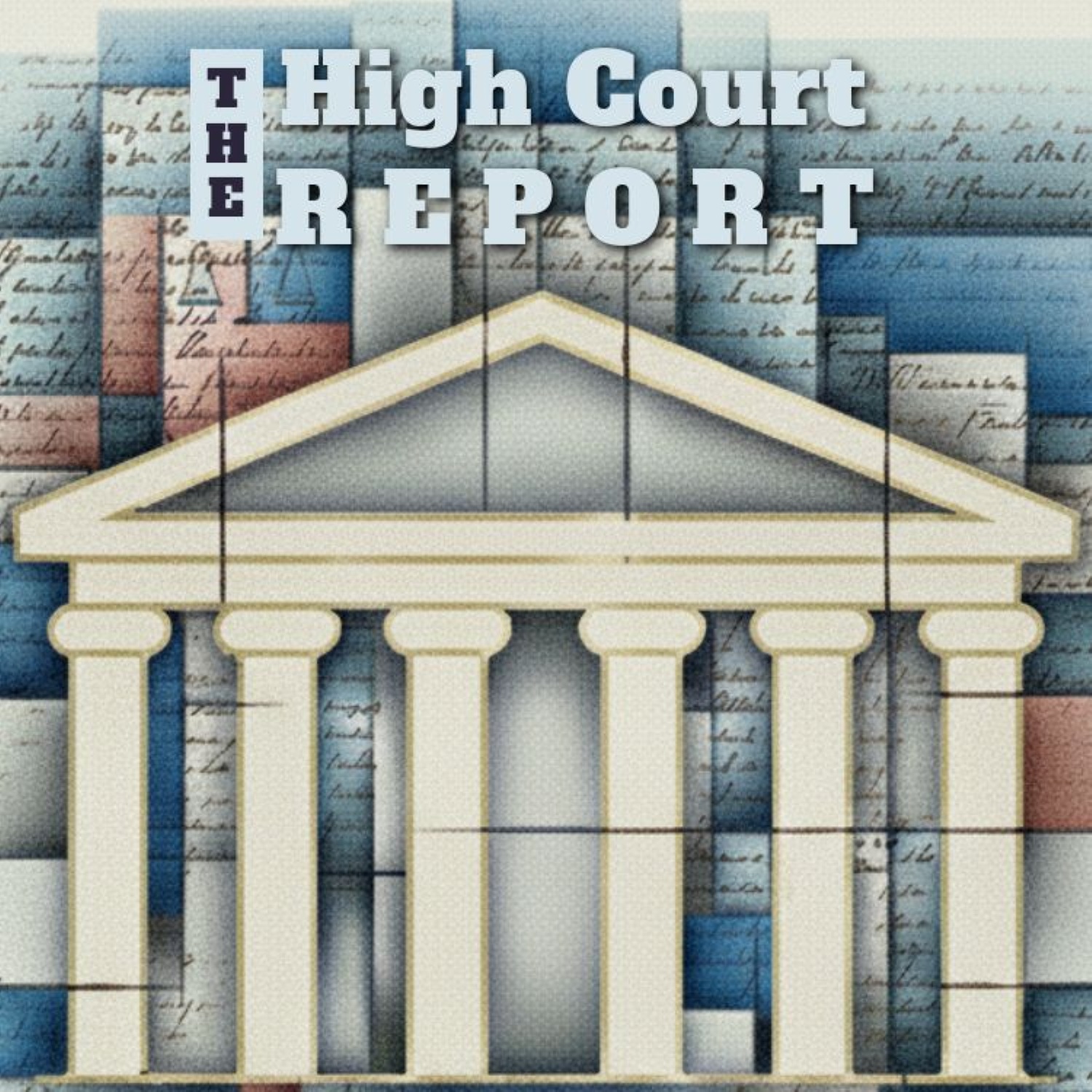Episode 28
Case Preview: Geo Group v. Menocal | The Procedural Privilege: The Immunity Fast-Pass to Appeal
Geo Group v. Menocal Case No. 24-758 | Oral Argument Date: 11/10/25
Overview
This episode examines The GEO Group, Inc. versus Menocal, a technical procedural fight with massive real-world consequences for the hundreds of billions of dollars the U.S. government spends on contracts annually. The case pits the efficiency of the justice system against the government's ability to use private contractors to carry out its functions. At stake is whether a government contractor who loses a pre-trial claim of "derivative sovereign immunity" can appeal that decision immediately, or must wait until after a full, costly trial before an appeals court can weigh in.
Episode Roadmap
- Opening: A Procedural Privilege: A Fast-Pass to Appeal?
- Upcoming Oral Arguments: Week of November 3, 2025
Monday, Nov. 3:
- Rico versus United States
- Hencely versus Fluor Corp.
Tuesday, Nov. 4:
- Coney Island Auto Parts, Inc. versus Burton
- Hain Celestial Group versus Palmquist
Wednesday, Nov. 5:
- The Trump Tariff Cases (Trump v. V.O.S. Selections, Inc., et al. and Learning Resources, Inc. v. Trump)
• Note: The argument for Hamm versus Smith has been moved to December 10th.
Key Concepts Explained:
- Sovereign Immunity: The "king can do no wrong" principle; governments generally cannot be sued without their consent.
- Derivative Sovereign Immunity: The core defense from Yearsley, claiming a contractor shares the government's immunity when it "performed as the Government directed."
- Collateral-Order Doctrine: The Cohen exception; allows immediate appeal for a true "immunity from suit," not just a "defense to liability."
Background:
- The GEO Group, a private contractor operating an ICE facility, was sued by detainees.
- The claims allege forced labor (violating the TVPA) and unjust enrichment ($1/day pay).
- GEO claimed Yearsley immunity, arguing ICE directed the policies.
Lower Court Journey:
- The district court denied GEO's immunity claim, finding GEO had discretion.
- The Tenth Circuit dismissed GEO's immediate appeal for lack of jurisdiction.
- The court found an "overlap" between the immunity claim (facts of direction) and the case merits (facts of lawfulness), so it was not a "collateral order."
- This created a deep circuit split.
Petitioner's (GEO) Arguments:
- Yearsley provides a true "immunity from suit," not just a defense.
- Precedent compels appealability: Filarsky (giving immunity to an individual contractor) + Mitchell (making that immunity appealable) = GEO wins.
- The Tenth Circuit's "overlap" reasoning was rejected in Mitchell.
- Policy: Denying appeals hamstrings government functions; contractors will "raise their price."
Respondent's (Menocal) & U.S. Government's Arguments:
- "Derivative sovereign immunity" doesn't exist; sovereign immunity is "non-delegable."
- Yearsley only grants a "defense to liability" (no liability), not an "immunity from suit" (no suit).
- A true immunity protects unlawful conduct (if law isn't clear), but Yearsley only protects lawful conduct (following directions).
- The order fails Cohen's third prong: It can be effectively reviewed after a final judgment.
GEO's Reply:
- Respondents are attacking a "Grand Straw Man"; GEO claims conditional immunity, not the government's total immunity.
- The Court cannot ignore Filarsky: An individual contractor received this protection, and a corporation is no different.
Stakes & Oral Argument Preview:
- How will the Justices treat the Filarsky and Mitchell precedents?
- The "battle of the bright lines": Does GEO's rule flood the courts, or does Menocal's rule terrify contractors?
